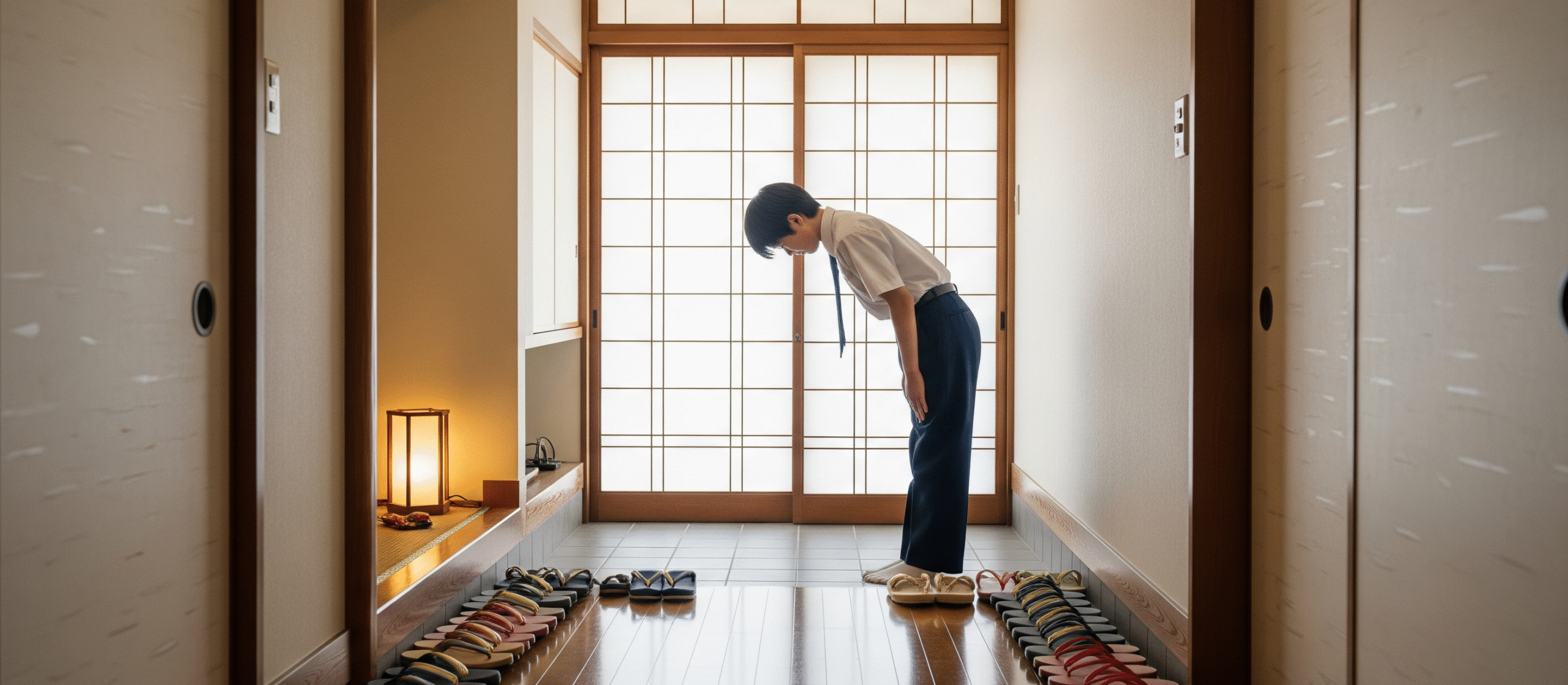Adoption of Cultural Etiquette in Japan
Removing Shoes to Show Respect

Understanding Japanese culture isn’t just about grammar or vocabulary—it’s about behavior. Everyday etiquette reflects the nation’s deep respect for harmony, cleanliness, and others’ comfort. Whether you’re traveling, studying, or working in Japan, following these unwritten social rules shows cultural awareness and builds trust.
Shoes Off Indoors
In Japan, it’s customary to remove your shoes when entering homes, temples, traditional inns, and even some restaurants or clinics. This practice maintains cleanliness and separates the outer world from private or sacred spaces.
- Always place your shoes neatly, facing the entrance.
- Indoor slippers may be provided—use them correctly, and never wear them into tatami rooms or restrooms.
Quiet in Public Spaces
Public areas, especially trains and buses, are meant to be calm. Loud phone conversations, music, or disruptive behavior are considered inconsiderate.
- Put phones on silent mode.
- Speak in low tones, if at all.
This silence reflects mutual respect and awareness of others.
Bowing Over Handshakes
A bow is the standard form of greeting and shows politeness. Unlike Western handshakes, bowing is non-contact and varies in depth depending on the situation.
- A slight bow for casual situations.
- A deeper bow for formal greetings, thanks, or apologies.
It’s a quiet yet powerful gesture of humility.
The Thoughtful Act of Gift Giving
Gift-giving in Japan is a subtle art. It’s not just about the item but the way it’s presented.
- Offer gifts with both hands.
- Use simple, respectful phrases like “つまらないものですが…” (It’s just a small gift…).
Reciprocity is expected—if you receive a gift, plan to return one later.
Final Thoughts
Japanese etiquette is less about rules and more about respect, awareness, and modesty. Small actions—removing shoes, staying quiet, bowing, or giving gifts—speak volumes in a culture where what’s unsaid often matters more than what’s spoken.
Learning these customs doesn’t just make you a polite visitor—it brings you closer to the heart of Japanese society.